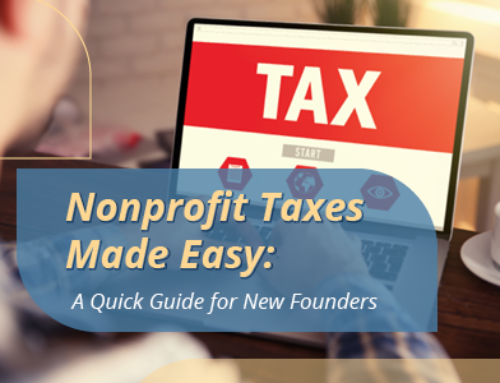
I have a lot of opinions about nonprofits and how nonprofit staff should be treated (I know, big surprise!).
One of the things I feel strongly about is taking care of people. After all, it’s the people who make or break a nonprofit organization.
I get so frustrated with nonprofit leaders who are short-sighted and don’t see the benefit in paying for fundraising training and professional development for their staff, particularly the fundraising staff.
How do they expect their professional fundraisers to keep their skills current without attending seminars and webinars? How are they supposed to learn about the latest trends and techniques if they don’t attend conferences or attend association meetings.
Good fundraising training can keep your team up-to-date on the latest trends and strategies, plus it can keep them excited about their work.
I understand that some organizations are struggling and the training budget is the first thing to go. First, I believe that no nonprofit needs to struggle financially. Those that are need to back up and implement some basic fundraising strategies to eliminate the struggle.
I applaud those folks who want to pay for books and training themselves. That’s admirable. But make sure you are doing it because you want to and not because it’s your only choice.
Hiring is not an easy task. I’ve done it many times. Once you find the right person, it behooves you to do what needs to be done to keep them. And that means paying for continuing education.
Make sure they have access to the tools and resources they need. Make sure they get to attend their local Association of Fundraising Professionals chapter meetings.
Remember that nonprofit staff don’t make as much working at nonprofit organizations as they could in the for-profit world. One way to equalize their compensation is to pay for their ongoing education and fundraising training.
In my career, I worked for organizations that covered all my training and organizations that wouldn’t allow me the time to attend professional meetings. Trust me, management’s willingness to support my continued education made a big impact on how I felt about working for the organization!
Nonprofit directors and Boards who don’t pay for staff fundraising training for their staff are shooting themselves in the foot.
They are missing an opportunity to invest in their future and their capacity for raising money now and down the road. Staff fundraising training is a key component to success!
I’d love to know what you think. Click on the comment link and share your thoughts.






Well said, Sandy. You cannot expect good results if you do not invest in training those who are doing the work.
Funny that I’m just leaving after attending my Strategic Planning MPA class.
The organization I work for is supportive of my attending school in the evenings, but will not be offering any financial assistance. The organization I worked for in California supported my endeavors financially and believed that their investment would produce better results with appropriate tending to. Not only were they right, but I am inspired to return to the organziation that is willing to reach for the stars and groom an individual tailored to the vision.
Perfect example Ellen!! Thanks for sharing.
Sandy
You hit the nail on the head, Sandy As much as I hate to admit it, I’m going to be as loyal to you as you are to me. Everyone wants to feel valued and training shouldn’t only be for the “big wigs.” Now then, I’m stepping off of my soap box. 😉
Amen! Professional development is so important and it is important for organizations to encourage ongoing education and training.
I confess that I paid for all of my books and training in nearly every nonprofit position that I had, Sandy. The exception was the grantmaking foundation where I spent nearly 7 years – they mandated that every employee take at least one professional advancement opportunity every year. And it paid off big-time. Savvy employers know that it isn’t merely the employee who benefits – it’s the entire organization and other employees as well (who learn from each other). I also love the idea of stepping outside of your comfort level – in a recent branding workshop I learned that one NPO had sent along – no, not their marketing or development staff – but a program staff person. Brilliant!
Sandy,
Does the organization want to be effective or stagnant (and dying)?
I believe continuous development is important and training should be funded by the organization for ALL of the staff. However, I also believe each individual should also invest some of their own time and money in training above and beyond what the organization funds.
BTW – I volunteer with the Arthritis Foundation and they have funded training for me to improve my capabilities, and the capabilities of other volunteers as well. Volunteers, in addition to staff, take on many functions including fundraising for the organization.
Sandy, you are so right. Intuitively, we know that organizations miss out when they don’t invest in professional development. Really, lots of organizations miss out when they don’t consider where to use resources based on the numbers.
Looking at professional development and not calculating the ROI, is short sighted.
Hi Sandy, I completely agree with you about providing training for staff. Our new organization is all volunteer at this time. Many volunteers receive training in the garden just by the fact that they are volunteering to help work in a garden. This year, we provided no cost classes to the community; but not specific to volunteers. However, we want to do more. Do you have some suggestions about providing training to volunteers considering they are transient?
I usually try to get a commitment from volunteers for a specified time – 1 day a week for a month or 1 day a week for 6 months or some such. This helps my investment of time in their training bring more reward. If you have people who only want to come for 1 day you might want to find out why they don’t want to come back for more. Make it fun and worthwhile and they’ll want to come back regularly.
Sandy